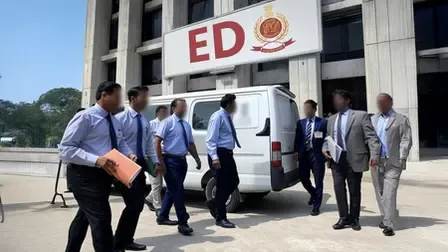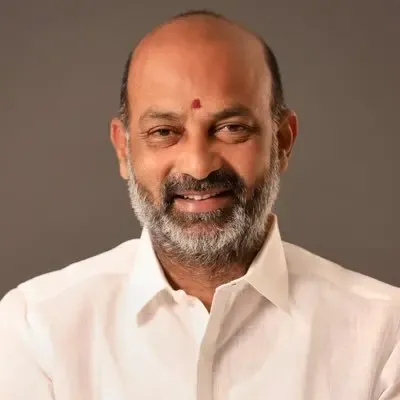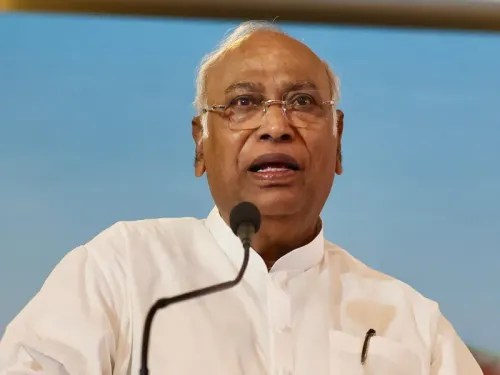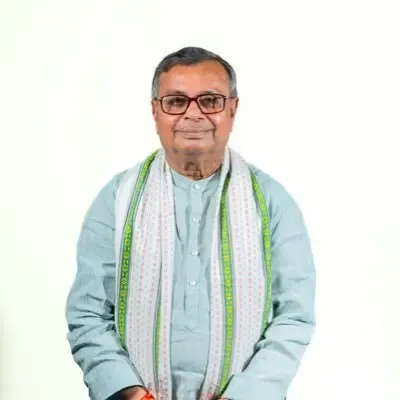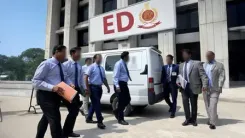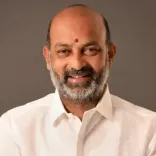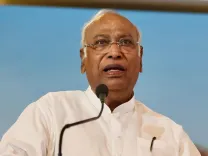Is Haryana's Water Dispute with Punjab Reaching a Breaking Point?
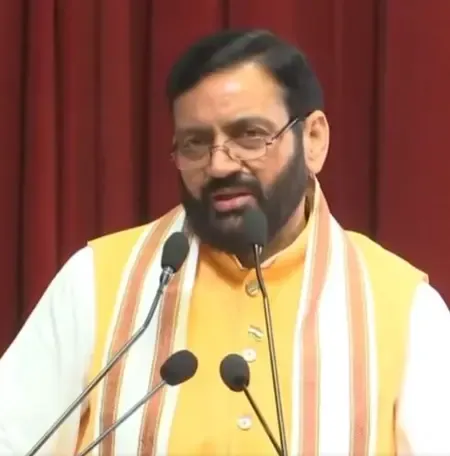
Synopsis
Key Takeaways
- Haryana and Punjab are in a water dispute over allocation from the Bhakra system.
- Haryana's Chief Minister has called an all-party meeting.
- Punjab claims it has no surplus water to share.
- Political leaders from various parties are participating in the dialogue.
- Negotiations are crucial to resolve the conflict amicably.
New Delhi, May 3 (NationPress) In a significant development regarding the escalating water conflict between Haryana and Punjab, Chief Minister Nayab Singh Saini has organized an all-party meeting for Saturday at 2 p.m. at his residence.
This gathering aims to establish a consolidated political front concerning the state's protracted dispute with Punjab over water distribution from the Bhakra system.
The disagreement was sparked by the Bhakra Beas Management Board (BBMB) announcing the release of 8,500 cusecs of water to Haryana, which includes an extra 4,500 cusecs.
The Haryana government, under BJP leadership, is striving to devise a holistic approach to affirm its claims on water allocation.
Leaders from various political factions have been invited to the meeting, with representatives from the ruling BJP, Congress, Indian National Lok Dal (INLD), Jannayak Janata Party (JJP), Aam Aadmi Party (AAP), Bahujan Samaj Party (BSP), and the Communist Party of India (Marxist) confirming their attendance.
Prominent attendees include BJP's Mohan Lal Badoli, Congress state head Udai Bhan, INLD’s Ram Pal Majra, JJP leader Dushyant Chautala, AAP’s Sushil Gupta, BSP’s Krishan Jamalpur, and CPI(M)’s Prem Chand. The National People's Party, based in Shillong, has also been invited to participate in the discussions.
This initiative follows a similar gathering held by Punjab on Friday, chaired by Chief Minister Bhagwant Mann, to deliberate on providing additional water to Haryana. The meeting concluded unanimously that Punjab lacks surplus water and agreed to approach either Prime Minister Narendra Modi or Union Home Minister Amit Shah to inform them of the circumstances.
The assembly included leaders from AAP, BJP, Congress, and the Shiromani Akali Dal. Afterward, a media briefing revealed the consensus among major parties rejecting the AAP government's proposal to share extra water with Haryana.
CM Mann stated that all political factions, transcending their ideologies, advised the government to conserve every drop of water, which is vital for the state.
Mann pointed out that Haryana is already receiving 4,700 cusecs against its allocated 1,700 cusecs, and warned against further 'theft' of Punjab’s legitimate share.
He emphasized that Haryana has exceeded its water allocation by 103 percent and cautioned of protests if Punjab's rights are compromised. A special Assembly session to address water sharing has been scheduled for May 5.
Meanwhile, CM Saini criticized the Punjab AAP government for supposedly politicizing the water crisis, asserting that Haryana possesses both a legal and moral entitlement to its share. He stressed that the matter surpasses party differences and necessitates a unified approach to protect Haryana’s rights.
This water dispute has created a complex political landscape, with national parties like BJP, Congress, and AAP facing internal conflicts. While their Haryana branches advocate for rightful water distribution, their Punjab counterparts insist there is no extra water available, arguing that Haryana has already received its share.
The current standoff originated on April 23, when Haryana requested 8,500 cusecs from the Bhakra-Nangal project, an increase of 4,500 cusecs beyond its current allocation. Punjab's CM Mann denied the request, directing the issue to the BBMB.

